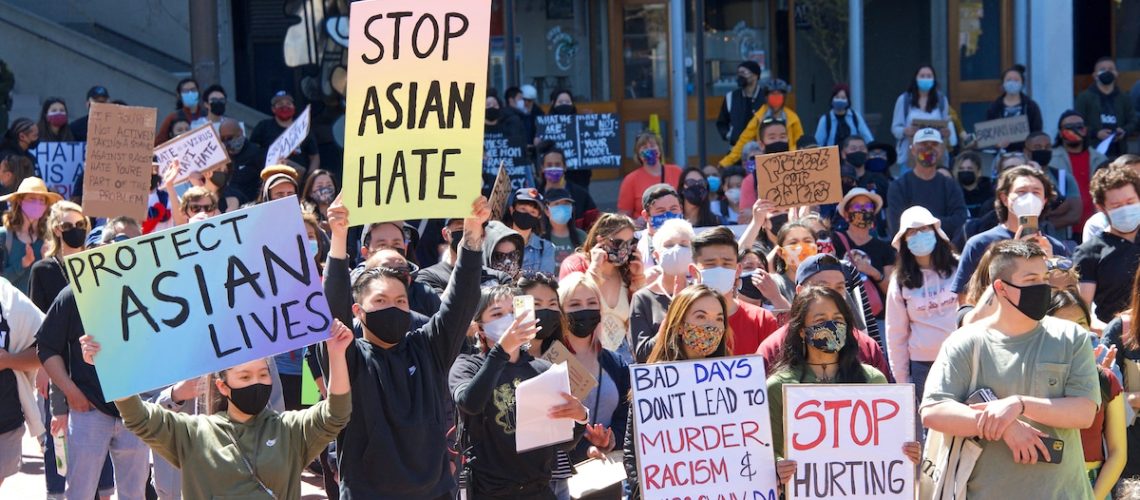Hate crimes are on the rise across the United States, with a significant uptick in racially motivated violence and threats, according to recent reports from the U.S. Department of Justice (DOJ). The trend reflects a disturbing increase in incidents targeting Black, Jewish, Asian American, and LGBTQ+ communities. As the country grapples with growing racial tensions, the DOJ has been stepping up its efforts to prosecute these cases and address the alarming rise in hate-fueled attacks.
Alarming Numbers in 2024
The DOJ’s 2024 report on hate crimes reveals a staggering increase in hate-related incidents over the past few years. According to the DOJ’s data, the number of hate crimes reported in 2023 rose by over 20% compared to the previous year. This includes physical assaults, threats, and property damage against racial, religious, and sexual minorities. The rise in hate crimes is not limited to any one region but is a nationwide problem, impacting urban, suburban, and rural areas alike.
“We are seeing a disturbing pattern of targeted violence against communities based on their race, religion, or identity,” said Assistant Attorney General Kristen Clarke of the DOJ’s Civil Rights Division. “The Justice Department remains committed to prosecuting these crimes to the fullest extent of the law.”
Targeting Black and Jewish Communities
African Americans and Jewish Americans have been among the primary targets of these hate crimes. In one high-profile case, two men in New York were recently charged with conspiring to attack a synagogue in a racially motivated plot. The suspects, who were found in possession of weapons and antisemitic materials, allegedly planned to “kill as many Jews as possible” before law enforcement intervened. The plot has sent shockwaves through Jewish communities, already on high alert after a spate of antisemitic attacks.
The Anti-Defamation League (ADL) has reported a sharp increase in antisemitic incidents over the past few years. “We’re dealing with an unprecedented rise in hate against Jewish people,” said Jonathan Greenblatt, CEO of the ADL. “It’s clear that antisemitism is not just surviving but thriving in some dark corners of our society.”
Meanwhile, Black Americans continue to face violent, racially motivated attacks. One of the most notorious incidents in recent months involved a group of white supremacists who assaulted a Black family in Missouri, injuring multiple members. The attackers were convicted on federal hate crime charges, with the DOJ noting that such cases are part of a broader resurgence in violent white nationalism.
Asian Americans Under Threat
Asian Americans have also experienced an alarming rise in hate-fueled violence, particularly since the onset of the COVID-19 pandemic. Although the wave of anti-Asian hate seemed to taper off in late 2022, it has surged again in 2024. A series of attacks on elderly Asian individuals in California, including one fatal assault in San Francisco, has reignited concerns about the safety of Asian American communities.
The Stop AAPI Hate coalition, which tracks incidents of violence and harassment against Asian Americans and Pacific Islanders, has reported thousands of cases since the pandemic began. “This kind of hate doesn’t just disappear,” said Manjusha Kulkarni, co-founder of Stop AAPI Hate. “We need concrete actions, from both law enforcement and community leaders, to address the underlying racism driving these attacks.”
DOJ’s Response
In response to the rise in hate crimes, the DOJ has been increasing its focus on investigating and prosecuting these cases. Attorney General Merrick Garland has vowed to make combating hate crimes a top priority for the department. “No one in this country should live in fear of being targeted because of who they are or what they believe,” Garland said in a recent press conference. “We are committed to ensuring that hate crimes are prosecuted swiftly and aggressively.”
The DOJ’s Civil Rights Division has been working closely with local law enforcement agencies to track and investigate hate crimes. In 2023, the DOJ launched the United Against Hate program, which aims to raise awareness about hate crimes and provide support for victims. This initiative includes community outreach efforts, partnerships with civil rights organizations, and a dedicated hotline for reporting hate crimes.
“Our goal is to ensure that victims of hate crimes know they are not alone, and that justice will be served,” said Assistant Attorney General Clarke.
Calls for Action
While the DOJ has ramped up its efforts to combat hate crimes, advocacy groups are calling for more systemic changes to address the root causes of racial violence in America. Many have pointed to the role of far-right extremism and online hate speech in fueling these attacks. The Southern Poverty Law Center (SPLC) has documented a rise in white nationalist and neo-Nazi groups across the U.S., with much of their rhetoric spreading through social media platforms.
“We’re seeing a toxic combination of racism, disinformation, and violence,” said Heidi Beirich, co-founder of the Global Project Against Hate and Extremism. “Law enforcement alone cannot solve this problem—it requires a concerted effort from tech companies, policymakers, and communities.”
At the same time, there is growing pressure on social media platforms to do more to combat hate speech. In 2024, several lawsuits were filed against major tech companies for allegedly failing to curb the spread of hateful content, which critics argue directly contributes to real-world violence.
21 Beliefs About the Bible That Are Actually False

The Bible is one of the most discussed and debated books in history, yet many common beliefs about it are more myth than fact. How many of these misconceptions have you heard before? 21 Beliefs About the Bible That Are Actually False
21 Subtle Racisms That Are Commonplace in America

Racism in America isn’t always overt; it often hides in plain sight through subtle actions and attitudes. How many of these subtle racisms have you noticed around you? 21 Subtle Racisms That Are Commonplace in America
Featured Image Credit: Shutterstock /Sheila FItzgerald.
This post first appeared on Pulse of Pride.

